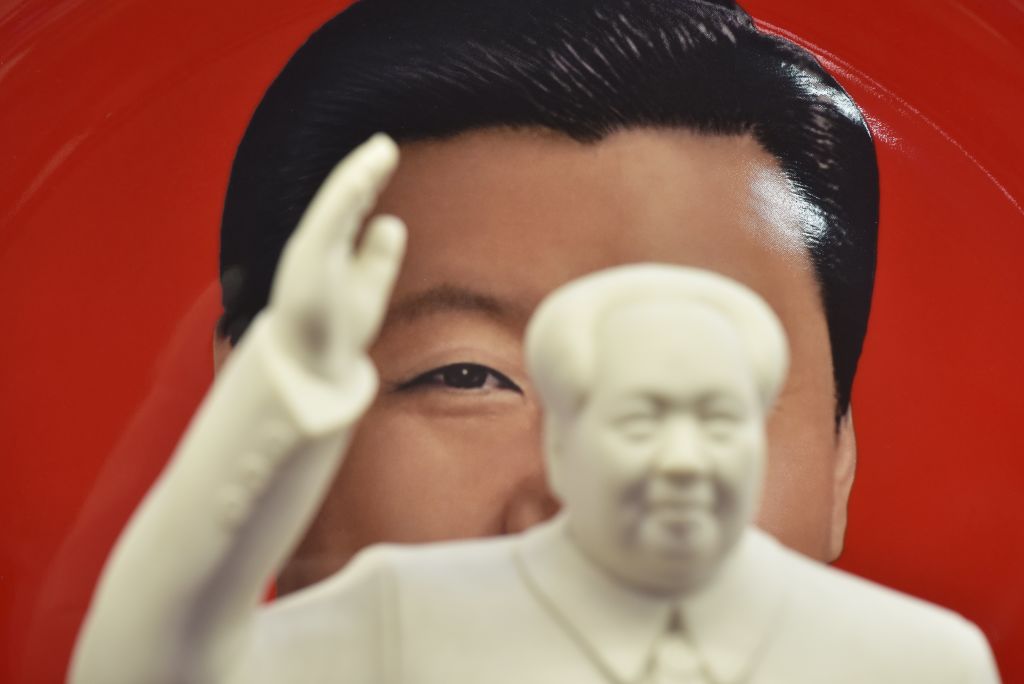 Print This Post
Print This Post- The Strategist - https://www.aspistrategist.org.au -
Uniting against authoritarianism: a blueprint for the Quad
Posted By John Garrick and Yan C. Bennett on February 26, 2021 @ 12:30

Article printed from The Strategist: https://www.aspistrategist.org.au
URL to article: https://www.aspistrategist.org.au/uniting-against-authoritarianism-a-blueprint-for-the-quad/
[1] a re-energised Quadrilateral Security Dialogue: https://www.aspistrategist.org.au/blinkens-call-opportunities-abound-to-revitalise-us-engagement-in-the-indo-pacific/
[2] World Health Organization: https://www.aspistrategist.org.au/investigators-must-counter-chinas-disinformation-campaigns-including-on-the-origins-of-covid-19/
[3] United Nations: https://www.abc.net.au/news/2021-02-03/uyghur-renew-calls-for-action-report-rape-abuse-xinjiang-camp/13118190
[4] World Trade Organization: https://ustr.gov/sites/default/files/2019_Report_on_China%E2%80%99s_WTO_Compliance.pdf
[5] ‘contested space’: https://www.wsj.com/articles/how-china-is-taking-over-international-organizations-one-vote-at-a-time-11601397208
[6] Quad Tech Network’: https://nsc.crawford.anu.edu.au/department-news/18328/quad-tech-network#:~:text=The%20Quad%20Tech%20Network%20(QTN)%20is%20an%20Australian,Japan%20(the%20National%20Graduate%20Institute%20for%20Policy
[7] international engagement strategy for cyber and critical technology: https://www.dfat.gov.au/international-relations/themes/cyber-affairs/public-consultation-international-cyber-and-critical-technology-engagement-strategy#:~:text=On%2022%20April%202020,%20DFAT%20published%20a%20call,and%20overseas,%20to%20provide%20input%20into%20the%20strategy.
[8] Competing visions: https://s3.amazonaws.com/files.cnas.org/documents/Lee_Testimony.pdf?mtime=20200722083241
[9] already disrupt geopolitics: https://www.chathamhouse.org/2019/11/us-china-strategic-competition
[10] altering institutions: https://theconversation.com/how-china-is-remaking-the-world-in-its-vision-155377
[11] legitimise its authoritarian rule: https://www.foreignaffairs.com/articles/china/2019-09-16/coming-soon-united-nations-chinese-leadership-and-authoritarian-values
[12] global internet and cyberspace governance: https://www.cnas.org/publications/reports/networked-techno-democratic-statecraft-for-australia-and-the-quad?utm_medium=email&utm_campaign=Weekend%20Reads%20January%2022%202021&utm_content=Weekend%20Reads%20January%2022%202021+CID_67479a004db9eaaa9f3b0d04161cbf61&utm_source=Campaign%20Monitor&utm_term=READ%20MORE
[13] China Standards 2035: https://www.china-briefing.com/news/what-is-china-standards-2035-plan-how-will-it-impact-emerging-technologies-what-is-link-made-in-china-2025-goals/
[14] Made in China 2025: https://thediplomat.com/2019/02/made-in-china-2025-explained/
[15] Jens Stoltenberg: https://www.nato.int/nato2030/index.html
[16] Some argue: https://www.afr.com/by/kishore-mahbubani-p4yw4u
[17] the ‘Quad-plus’: https://www.aspistrategist.org.au/chinas-actions-have-driven-the-evolution-of-the-quad/
[18] Five Eyes: https://www.aspistrategist.org.au/defence-and-industry-could-fund-cutting-edge-university-research-with-five-eyes-allies/
[19] Democracy 10: https://foreignpolicy.com/2020/06/10/g7-d10-democracy-trump-europe/
[20] others will seek out new alliances: https://amp.scmp.com/comment/opinion/article/3120410/how-chinas-rise-middle-east-can-inform-us-policy-under-biden